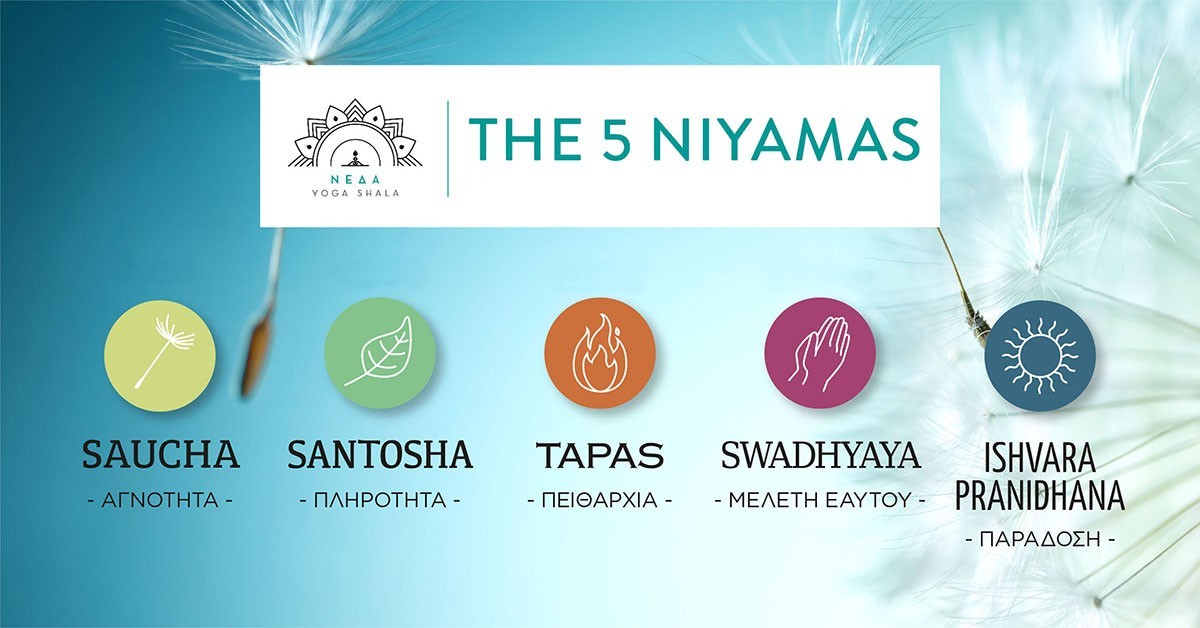
The 5 Niyamas
Śaucasantoṣatapaḥsvādhyāyeśvarapraṇidhānāni niyamāḥ||2.32|| Yoga Sutras 2.32
Somewhere between the 2nd and the 5th century B.C., the great sage Patanjali wrote down the Yoga Sutras. This text became Raja Yoga’s main source of inspiration (even thought Raja Yoga predated Patanjali, through great sages like Shukracharya). The text consists of 196 aphorisms. It describes the nature of the mind in a very concise way, and it offers a practical system of spiritual development.
Raja Yoga as presented by Patanjali has 8 components: the first two are called Yamas & Niyamas, and they refer to certain qualities and disciplines that have to be cultivated in life. They are followed by Asana (stable and comfortable physical pose), Pranayama (expansion of prana, using breathing as the main tool), Pratyahara (withdrawal of the senses), Dharana (concentration), Dhyana (meditation) and Samadhi (superconscious experience).
The first step (the 5 yamas) is about how to interact with the world (nonviolence, honesty, non-theft etc.). On the contrary, the 5 niyamas concern practices of inner discipline and exercise, and they provide guidance on how to relate to our own self.
The 5 Niyamas:
- Saucha (purity: physical, emotional and mental)
- Santosha (contentment, satisfaction)
- Tapas (discipline, purification, austerity, sacrifice)
- Swadhyaya (self-knowledge, self-study)
- Isvara Pranidhana (surrender, faith, dedication to something superior)
The Niyamas are not a list of obligations, but a reminder that real freedom comes through discipline. It is an invitation and at the same time, a list of tools, so that we can experience a calm, harmonious and blissful inner state. They reflect a more connected, conscious and pure expression of our personality, and they create a fertile environment in which we can mature and evolve.
Exercising the Niyamas is a wonderful practice on its own. Cleanliness at all levels (Saucha), the sensation of contentment regardless of the circumstances (Santosha), the discipline of instincts and the conscious austerity regarding material comforts (Tapas), inner search (Swadhyaya) and faith and dedicated surrender to something beyond us (Isvara Pranidhana). All of those things, if practiced with consistency and honesty, can become an extremely transformative process of self-knowledge and purification.